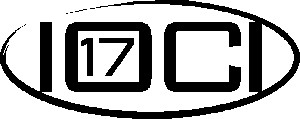|
57
|
|
750.3430: a) Food handlers employed by a restaurant:
1) All food handlers employed by a restaurant, other than someone holding a food service sanitation manager certificate, shall receive or obtain ANSI accredited training or Department approved training in basic food handling principles, as outlined in Section 750.3410, by December 31, 2014. From July 1, 2014 through December 31, 2014, enforcement of the provisions of this Section shall be limited to education and notification of requirements to encourage compliance. (Sections 3.06(b) and(i) of the Food Handling Regulation and Enforcement Act)
2) Existing employees shall receive training by July 1, 2014 and every three years after that date.
3) New employees shall receive training within 30 days after employment and every three years after the initial training.
4) Training is transferable between employers, except for training obtained through an internal training program.
b) Food handlers employed by a food service establishment that is not a restaurant:
1) All food handlers employed by a food service establishment that is not a restaurant, other than someone holding a food service sanitation manager certificate, shall receive or obtain training in basic food handling principles, as outlined in Section 750.3410, by July 1, 2016. From July 1, 2016 through December 31, 2016, enforcement of the provisions of this Section shall be limited to education and notification of the requirements to encourage compliance. (Sections 3.05(a) and (e) of the Food Handling Regulation and Enforcement Act)
2) Existing employees shall receive training by July 1, 2016.
3) New employees shall receive training within 30 days after employment.
4) Training is not transferable between individuals or employers (Section 3.05(a) of the Food Handling Regulation and Enforcement Act).
c) All food handlers employed in nursing homes, licensed day care homes and facilities, hospitals, schools, and long-term care facilities must renew their training every three years. (Section 3.06(b) of the Food Handling Regulation and Enforcement Act)
d) Kane County shall issue expirations of food handler training to food handlers in accordance with Section 3.06(b) of the Food Handling Regulation Enforcement Act starting July 1, 2014. If a food handler in Kane County received training prior to July 1, 2014, then the expiration of the certificate issued shall be valid. Upon expiration, the food handler shall obtain training in accordance with the frequency set forth in Section 3.06(b) of the Food Handling Regulation Enforcement Act.
e) There is no limit to how many times an employee may take the training. (Sections 3.05(a) and 3.06(b) of the Food Handling Regulation and Enforcement Act)
f) Proof that a food handler has been trained shall be available upon reasonable request by a State or local health department inspector and may be in an electronic format. (Sections 3.05(a) and 3.06(b) of the Food Handling Regulation and Enforcement Act)
not all employees handling food have completed basic food handler training. correct by the next routine inspection.
|
